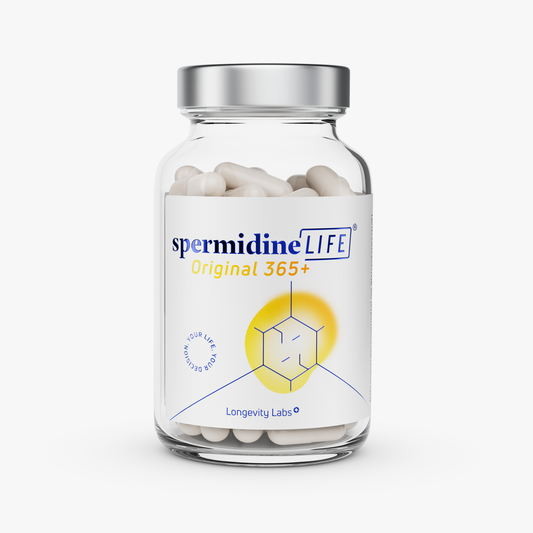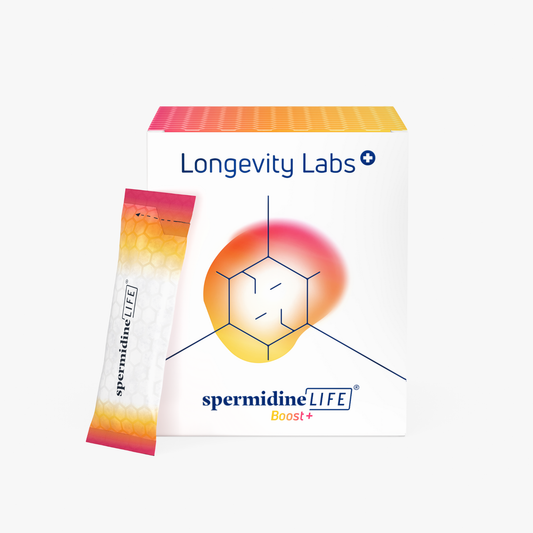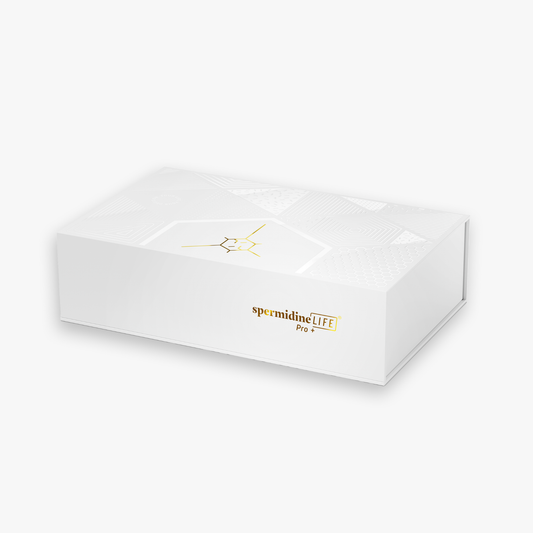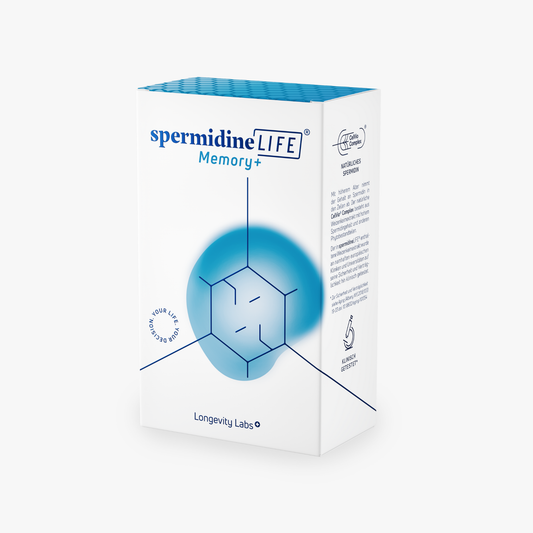
Strengthen immune system - but how
Immunity+, TLL LongevityLabsTemperatures are dropping, the cold winds are blowing relentlessly across the countryside, and a gray haze is settling over the world. While we cut back on our activities, our immune system goes into high gear during this time to protect us from various pathogens. It's high time to support it. Here are 6 areas to boost your immune system.
For many, our immune system is a big question mark. It sometimes works better, sometimes worse, but only a few people know why - apart from colds and flu. However, thanks to research, we know the factors that influence the immune system very well and supporting our immune system is not witchcraft.
Our immune system consists of two major parts: the innate immune system and the acquired immune system. In both parts, a multitude of immune cells are tasked with recognizing and fighting off invaders. You can read more about this in the blog post about our immune cells.
The innate immune system
The innate immune system is non-specific. That is, the defense cells of innate immunity are not specialized for a particular pathogen, but attack all invaders equally and immediately. It has no memory and does not recognize recurrent pathogens. For example, a mutating virus like the flu virus can come back to haunt us every year.
The acquired immune system
This is contrasted with the acquired immune system. These defense cells are specific, meaning they recognize a particular pathogen and remember it. This takes a little longer, which means that the immune reaction is delayed. After that, however, they can build up an acquired immunity against the invader and thus recognize it again in the future and fight it stronger and faster.
But the most important part is that we can actively influence both parts of our immune system through our behaviors, either supporting or weakening the immune cells in question. What behaviors do we use to do that? We have in 6 supports of the immune system summarized. Over the next few weeks, we will look at each of these areas in detail and give you everyday tips on how you can positively influence your immune system accordingly. But here is a short preview:
Balanced diet
Yes, we unfortunately still underestimate the influence of our diet on our health. But also our immune cells need the right nutrients to be strengthened for the fight against various pathogens. The main thing here is a healthy and balanced diet that provides us with all the important nutrients. This is how our body can keep our internal processes running.
Unfortunately, healthy nutrition has still not arrived with us, as statistics prove. According to the Austrian nutrition report of the Ministry of Health from 2017, 51% of women and even 58% of men generally eat too much. The fact that the wrong things are also eaten here is shown by the food intake figures: Austrian adults achieve on average only one third of the daily recommended vegetable intake! When it comes to fruit, things don't look much better for men: They eat only one portion a day instead of two. Women are better off here, but do not reach the recommended daily amount either. Unfortunately, we are still a long way from a healthy diet.
Balance in everyday life
The eternal stress in our driven society... We know that. But what many people don't know is that it has a very negative effect on our immune system. While acute, short-term stress, such as before an exam or presentation, causes our immune system to ramp up, long-term stress - that is, prolonged stress - weakens both parts of our immune system. In other words, our immune cells divide more slowly. The activity and number of immune cells decreases, making them less efficient.
Unfortunately, this affects a large proportion of Austrians. A 2017 study found that 39% of Austrians feel significantly affected by stress at work. Young people are particularly affected by this: Already 41% of 18-34 year olds feel an acute stress load at work. Unfortunately, those who seek relaxation in their free time do not always find what they are looking for. On top of that, 25% of the participants stated that they also experience stress in their leisure time - keyword "leisure time stress". Unfortunately, this is a very worrying development that we should put a stop to as soon as possible. The motto is therefore clear: reduce stress!
Balancing exercise
I walk a lot anyway. To the parking lot where the car is parked, for example. From time to time we have to laugh at ourselves - how wonderfully we often lie to ourselves. But exercise has so many positive effects on our health. The circulation is activated, the vessels dilate, (happiness) hormones are released and our body cells remain active and healthy. Of course, this also affects the cells of our immune defense.
It would be so simple ... But the fact is that only 43% of the population gets enough exercise. According to the WHO, this would mean at least 150 minutes of moderate or 75 minutes of intensive exercise per week. If this is not enough to motivate you, consider that the risk of death increases by 56% (!) due to lack of exercise. This was the result of a British study conducted over a period of 20 years.
Strengthened immune cells
As already mentioned several times, our immune cells play an important role in the immune defense. Accordingly, it is important to take care of our cells. This is where cell renewal comes into play: Only healthy cells can function as small power plants and thus fulfill their individual task. To support them in this, it is important to regularly remove the old cellular waste.
So what do our immune cells need from us for this? Well, this includes everyday things like drinking enough water - if you want to know what enough is, you can find out here sunshine - read more about it here - and of course all the ways to stimulate autophagy, our cellular cleansing. For example, a warming sauna session - you can find tips on how to do this here. But of course, this is not the end of the list. So stay tuned to see what else we'll pull out of the hat in the coming weeks.
Restful sleep
Good evening, good night! The importance of sufficient and restful sleep for the immune system was shown last year by scientists at the University of Tübingen and Lübeck found out. They were able to show that after only three hours without sleep, the function of the T cells is already impaired, and these play an important role in the immune defense.
Here it looks with us once completely well: According to a survey by Statista, Austrians slept an average of 7.2 hours in 2016. This also generally corresponds to the recommendations of various medical studies, for example the largest study of the University of California in San Diego, which was conducted with one million participants and over a period of 6 years. This study postulated 7 hours of restful sleep per night. But it also showed that just 20 minutes too little sleep impairs performance and memory. With this in mind, let's strengthen our immune system and get some sleep!
Mental mindfulness
I see. No, there was one more thing. One area that influences our immune system has often been given too little attention so far: our psyche. That it has quite an influence on our body, we have shown here already reported here. But it also has a direct effect on our immune system. Psychoneuroimmunology deals with direct interactions between the psyche, nervous system and immune system. Researchers have already proven, for example, that the immune system can be accelerated or slowed down by messenger substances in the nervous system.
What does this look like?
In a study conducted by the University Hospital Essen patients were given a toxic green milk with strawberry-lavender flavoring to go with their dose of immune-inhibiting drugs. And lo and behold, not only did the taste buds respond, but so did the immune system. "The inhibition of the immune system again increased significantly," confirmed study leader Professor Manfred Schedlowski, director of the Institute for Medical Psychology and Behavioral Immunology. The very assumption of the test persons that this drink must enhance the effect supported the effects on the immune system - also known as placebo effect. We can use this effect of our psyche on our immune defense in our favor and we will show you how in the next few weeks.
So far, so good.
But now for the bad news: unfortunately, of course, the whole thing doesn't work right away! Strengthening the immune system, or rather reducing negative effects on the immune system, does show success, but only over a period of time. Nevertheless, we should better start today than tomorrow to support our immune system and our immune cells in their daily task. Subscribe now to our social media channels at Facebook, Instagram and LinkedIn so that you don't miss anything in the next weeks!






